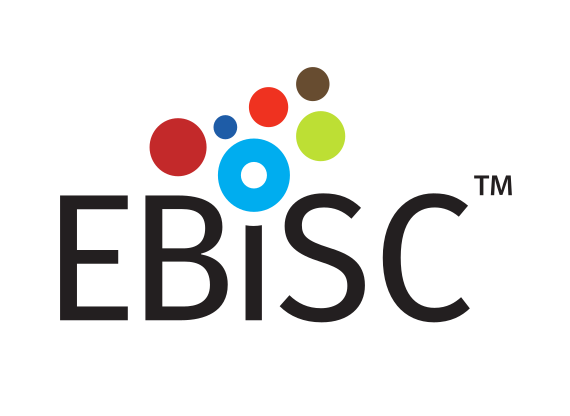If the cells you would like to access are currently listed as unavailable or
you would like information on local partners in USA, Australia, New Zealand or Japan who can support order and delivery,
please get in touch via
Contact@EBiSC.org.
WTSIi151-A
HPSI0414i-fixm_2
iPSC line
A CLIP contains information about a cell line including any
specific third party obligations relating to, for example,
licensing obligations or the donor consent which affect the
use of the cell line.
The EBiSC Access and Use Agreement must be completed along with an individual
Cell Line Information Pack for each line. Complete the EAUA and send to Contact@EBiSC.org
for countersignature. The EAUA must be fully signed before proceeding with your order.
To receive the Certificate of Analysis, please contact us.
A batch specific Certificate of Analysis will be available to
download once you receive your EBiSC iPSC line.
General#
Cell Line |
|
| hPSCreg name | WTSIi151-A |
| Alternative name(s) |
HPSI0414i-fixm_2
|
| Cell line type | Human induced pluripotent stem cell (hiPSC) |
| Similar lines |
|
Provider |
|
| Depositor | Wellcome Sanger Institute (WTSI) |
| Distributors |
EBiSC
|
| Derivation country | United Kingdom |
External Databases |
|
| hPSCreg | WTSIi151-A |
| BioSamples | SAMEA2757093 |
| HipSci | HPSI0414i-fixm_2 |
| Cellosaurus | CVCL_AF15 |
| Wikidata | Q54890702 |
General Information |
|
| This EBiSC line can be used for: |
Yes
Research use: allowed
Clinical use: no
Commercial use: no
|
Donor Information#
General Donor Information |
|
| Sex | male |
| Age of donor (at collection) | 25-29 |
| Ethnicity | Caucasian |
Phenotype and Disease related information (Donor) |
|
| Diseases | A disease was diagnosed.
|
External Databases (Donor) |
|
| BioSamples | SAMEA2482386 |
| HipSci | HPSI-fixm |
hIPSC Derivation#
General |
|
| Source cell type |
A connective tissue cell which secretes an extracellular matrix rich in collagen and other macromolecules. Flattened and irregular in outline with branching processes; appear fusiform or spindle-shaped.; These cells may be vimentin-positive, fibronectin-positive, fsp1-positive, MMP-1-positive, collagen I-positive, collagen III-positive, and alpha-SMA-negative.
|
| Source cell origin |
Any portion of the organ that covers that body and consists of a layer of epidermis and a layer of dermis.
Synonyms
|
| Age of donor (at collection) | 25-29 |
| Collected in | 2014 |
| Source cell line vendor | University College London |
Reprogramming method |
|
| Vector type | Non-integrating |
| Vector | Sendai virus |
| Genes | |
| Notes on reprogramming vector detection | CytoTune 1 |
Vector free reprogramming |
|
Other |
|
| Selection criteria for clones | Morphology |
| Derived under xeno-free conditions |
No |
| Derived under GMP? |
No |
| Available as clinical grade? |
No |
Culture Conditions#
The following are the depositor culture conditions, they do not refer to any specific batch.
| Surface coating | Vitronectin |
| Feeder cells |
No |
| Passage method |
Enzyme-free cell dissociation
EDTA
|
| CO2 Concentration | 5 % |
| Medium |
TeSR™ E8™
|
Characterisation#
Analysis of Undifferentiated Cells
| Marker | Expressed | Immunostaining | RT-PCR | Flow Cytometry | Enzymatic Assay | Expression Profiles |
| POU5F1 (OCT-4) |
Yes |
|
||||
| SOX2 |
Yes |
|
||||
| NANOG |
Yes |
|
| Pluripotency Score | Novelty Score | |
| 34.624 | 1.452 |
Report
HPSI-fixm.pluritest.pluripotency_score.20161010.png
pluripotency image
HPSI-fixm.pluritest.novelty_score.20161010.png
novelty image
Genotyping#
Karyotyping (Cell Line) |
|
| Has the cell line karyotype been analysed? |
No
|
Other Genotyping (Cell Line) |
|
| Is there genome-wide genotyping or functional data available? |
Yes
Exome sequencing
https://www.ebi.ac.uk/ega/studies/EGAS00001000969
cnv
http://www.hipsci.org/lines/#/lines/HPSI0414i-fixm_2 Number of regions different from primary tissue: 0; Length of differences from primary tissue: 0
Methylation profiling
https://ega-archive.org/datasets/EGAD00010001145 Text file with probe intensities |
